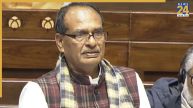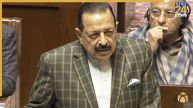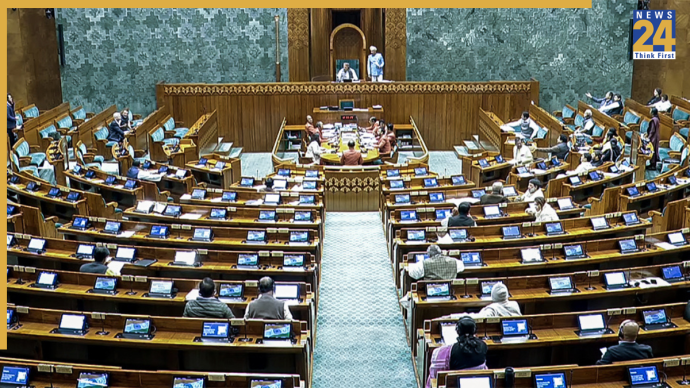Amid controversy over replacing the word India with Bharat, the central government has called for a special parliamentary session scheduled from September 18 to 22 to reportedly amend the relevant provisions of the constitution. BJP bigwigs have already clarified that there will be discussions over the possibility of replacing the word ‘India’ with ‘Bharat’ in the Indian Constitution.
However, it’s important to note that the official agenda for this session has not been formally announced.
With this development, the biggest question that arises is that does the Parliament have authority to replace the word ‘India’ with ‘Bharat’? To understand the Parliament’s authority in this matter, one must refer to significant past legal decisions, including the Kesavananda Bharati vs State of Kerala, 1973, and Golaknath and Ors. vs State of Punjab, 1967, which have delineated the powers of Parliament in constitutional matters.
Read More: Big News! Centre Plans To Remove ‘India’ From Constitution: Reports
Does Parliament Have the Power To Change The Name ‘India’
Yes, the Parliament has the power to replace the word ‘India’ with ‘Bharat’in the Indian Constitution. This power is provided under Article 368 of the Indian Constitution, which deals with the procedure for amending the Constitution. Amendments can be made to various parts of the Constitution, including its Preamble, provisions related to Fundamental Rights, Directive Principles of State Policy (DPSP), federal structure, and other aspects.
About Article 368
Power of Parliament to amend the Constitution and Procedure therefor: (1) Notwithstanding anything in this Constitution, Parliament may in exercise of its constituent power amend by way of addition, variation or repeal any provision of this Constitution in accordance with the procedure laid down in this article.
Golaknath Case, 1967
The Golaknath case, formally known as Golaknath and Ors. vs. State of Punjab (1967), is another landmark judgment in Indian constitutional law. This case centered on the issue of property rights and the extent to which the government could restrict them through constitutional amendments. The Supreme Court’s decision in Golaknath declared that Parliament lacked the authority to amend fundamental rights, including property rights, through constitutional amendments. This verdict significantly emphasized the sanctity of fundamental rights and restricted the government’s ability to infringe upon them through amendments. Although subsequent constitutional amendments, like the 44th Amendment Act of 1978, modified this interpretation, the Golaknath case remains a critical precedent that underscores the importance of safeguarding fundamental rights in India’s constitutional framework.
Kesavananda Bharati vs. State of Kerala, 1973
The landmark judgment in the case of Kesavananda Bharati vs. State of Kerala in 1973 is a pivotal moment in the history of Indian constitutional law. In this historic decision, the Supreme Court of India established the doctrine of the “Basic Structure” of the Constitution, ruling that while Parliament had the power to amend the Constitution, it could not alter its “Basic Structure.” This judgment profoundly impacted the balance of power between the legislature and the judiciary in India, safeguarding fundamental rights and constitutional principles from arbitrary changes by the government, and has since served as a cornerstone for protecting the democratic and secular values enshrined in the Indian Constitution.
Basic Structure Doctrine Of Indian Constitution
The Kesavananda Bharati case played a pivotal role in introducing and establishing the “basic structure doctrine” in Indian constitutional jurisprudence. This doctrine affirmed that the fundamental framework and core principles of the Indian Constitution were immune to abrogation or alteration through constitutional amendments. The judgment identified several elements as part of this basic structure, including the supremacy of the Constitution, the unity and sovereignty of India, the democratic and republican form of government, the federal character of the Constitution, its secular character, separation of powers, and individual freedom.
Over time, additional features have been incorporated into this list, encompassing the rule of law, judicial review, the parliamentary system, the rule of equality, harmony between Fundamental Rights and DPSP, free and fair elections, limits on Parliament’s power to amend the Constitution, and the authority of the Supreme Court and High Courts under specific articles. The doctrine empowers the Supreme Court to invalidate any law or amendment that contravenes these foundational principles, on the grounds that they undermine the basic structure of the Constitution.
Apart from the Basic Structure Doctrine, the other provisions are:
Special Majority
Amendments to the Constitution typically require a special majority in Parliament. This includes a two-thirds majority of members present and voting in each house of Parliament and, in some cases, ratification by at least half of the state legislatures.
Federal Provisions
Certain provisions that affect the federal structure of the Constitution require the consent of a majority of state legislatures in addition to the special majority in Parliament.
Judicial Review
Even if Parliament follows the prescribed procedure, the validity of constitutional amendments can be challenged in the courts, especially if they are seen as violating the basic structure of the Constitution.
Conclusion
In conclusion, while Parliament has the power to make changes in the Indian Constitution, this power is not absolute and is subject to the limitations mentioned above, including the basic structure doctrine, which protects the core principles and identity of the Constitution from being altered. If Parliament even passes the bill to replace word ‘India’ with ‘Bharat’ in the Constitution, the ultimate power only lies with the supreme court only.













